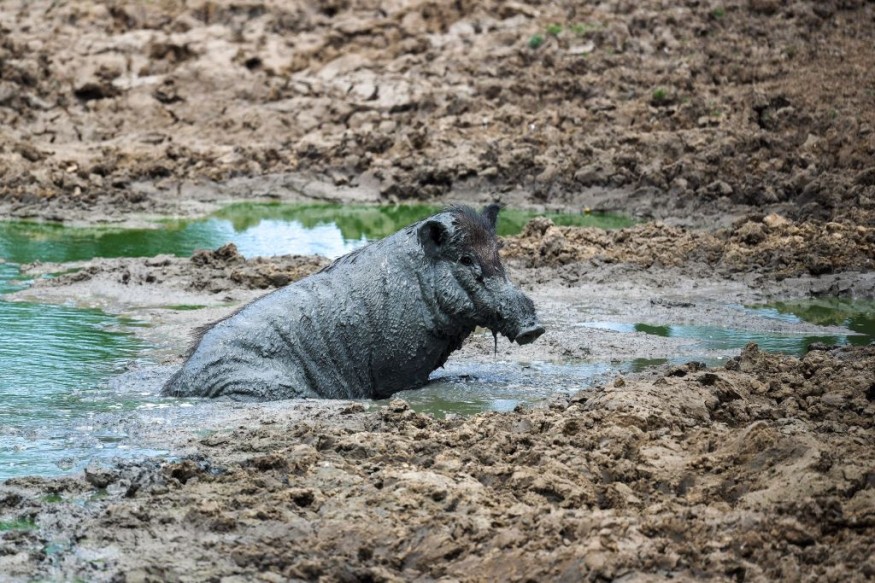
While the radioactivity of wild pigs in Germany has long been known, new research indicates that the Chernobyl catastrophe is not the only source of it. Nuclear weapons testing in the 20th century is also to blame.
Radioactive Feral Pigs in Germany
High quantities of radioactive cesium have been found in wild boars in southeast Germany, which has been largely attributed to the Chernobyl incident in 1986.
The "wild boar paradox" refers to this strange behavior whereby radioactivity levels have suddenly reduced in some species while remaining unchanged in the boars.
Scientists think both of these sources keep contaminating the boars through their diet, and a new study demonstrates that nuclear weapons testing from the middle of the 20th century is also to blame.
The alarmingly high amounts of radioactive cesium discovered in some of the stocky, tusked wild boars (Sus scrofa) have discouraged hunting of these animals for their meat and added to overpopulation problems.
In addition to total radionuclide quantification, radioecologist Felix Stäger of Leibniz University Hannover claims that their research sheds light on the infamous radio-cesium contamination detected in Bavarian wild boars.
Chernobyl Explosion Aftermath
Ecosystems are seriously threatened by radioactive elements spilled into the environment in the wake of a nuclear accident or explosion. There was an increase in radioactive cesium contamination following the Chernobyl disaster 37 years ago, particularly cesium-137, which has a half-life of around 30 years.
But nuclear fission can also produce the considerably more stable isotope cesium-135, which has a half-life of more than 2 million years.
Prior studies have shown that the ratio of cesium-135 to cesium-137 can be used to pinpoint the origin of the cesium; a high ratio denotes nuclear weapon blasts, while a low ratio suggests nuclear reactors as the most likely source.
48 samples of wild boar meat from 11 different districts of the German state Bavaria that were procured by hunters between 2019 and 2021 were used by the scientists to analyze the cesium levels.
Cesium-137 activity was measured using a high-purity gamma-ray detector, and the quantities of cesium-135 and cesium-137 were compared using sophisticated mass spectrometry.
In 88% of the cases of the analyzed meat samples, the radioactive cesium levels exceeded the permissible limit for Germany.
20th Century Nuclear Weapons Testing
The researchers found that nuclear weapons testing was the cause of 12% to 68% of the contamination in the specimens that went above the safe intake limit using the cesium-135 to cesium-137 ratio. According to the researchers, all samples show signs that Chernobyl fallout and nuclear bombs have mixed in the soil of Bavaria 20 to 30 years after their release maxima.
The majority of the cesium in wild boars comes from Chernobyl, but roughly 25% of the samples had significant enough quantities from weapon fallout to surpass the legal limit even without accounting for the Chernobyl contribution.
Also Read : Family of Pet Pigs Eating Invasive Plants on Golf Course Killed By Poachers - Hawaii Country Club
Bavarian Soil and Grazing Feral Pigs
Because underground truffles are a part of wild boars' diets, they have ingested variable degrees of contamination from both sources, which eventually led to the animals' enduring radioactivity.
As a low-carbon alternative solution to mankind's insatiable energy appetite in the face of climate change, nuclear power is making a comeback. The authors argue that research is necessary to comprehend any potential effects, into which their study has provided some insight.
According to the team, more nuclear accidents or explosions could worsen the current contamination of these species and have an immediate and long-lasting impact on food safety.
The study's authors concluded that it shows how strategic choices made about atmospheric nuclear tests about 60 to 80 years ago still affect distant natural areas, wildlife, and a source of food for people today.
© 2025 NatureWorldNews.com All rights reserved. Do not reproduce without permission.





